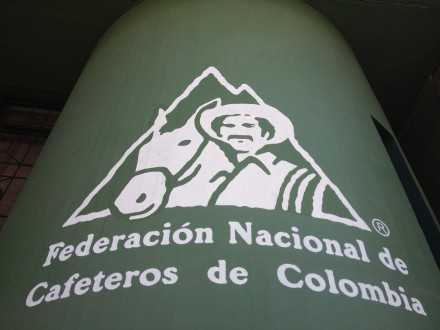African countries, as well as Mexico, Costa Rica, Honduras, Panama, Peru, Ecuador and Bolivia, have expressed their support for the FNC’s initiative to promote a global dialogue that leads to better and more stable income for producers, as this will ensure sustainability of the industry as a whole.
Sustainability of the coffee industry, from seed to cup, is a growing concern from the point of view of producers, buyers and consumers.
If the weakest link, producers, continues to be impacted by low international coffee prices (a low profitability does not enable, for example, to reinvest in the crops), the rest of the chain will not be sustainable due to a possible shortage of supply.
Under these premises, the Colombian Coffee Growers Federation (FNC), headed by its CEO, Roberto Vélez, has been promoting a global dialogue among all actors of the chain to ensure a sustainable and profitable production, and this proposal has been increasingly echoed.
Within the framework of the 116 meeting of the International Coffee Council, which took place in Addis Ababa, Ethiopia, in March, African coffee-producing countries, as well as Mexico, Central American countries, Peru, Ecuador and Bolivia, expressed their support for the Colombian initiative
In that city, Vélez met with representatives of coffee growers associations in Africa: Fred Kawuma, of the Inter African Coffee Organization (IACO); Henry Ngabirano, from the Uganda Coffee Authority; Samuel Kamau, of the African Fine Coffees Association (AFCA); Ishak K. Lukenge, of AFCA Uganda; Abdullah Bagersh, of AFCA Ethiopia and Jean Mutabazi, of ARFIC-Burundi.
In the meeting, several of the most important issues affecting coffee producers were discussed, such as low prices, climate change and the importance of starting a constructive dialogue of producers with the global industry to jointly face these and other challenges.
“There must be a fluid dialogue among all actors of the chain – from the smallest coffee grower to intermediate traders and the largest roasters – and joint action to ensure a sustainable and profitable production. This will enable future generations to continue enjoying quality coffees worldwide, as it has been so far,” Velez said.
In the Ethiopian capital, Vélez also met with the representatives of Mexico, Costa Rica, Honduras, Panama, Peru, Ecuador and Bolivia, a meeting where they expressed their support for the FNC initiative to address together the challenges of coffee production, which also includes generational replacement.
Before more than 700 attendees in the 4th World Coffee Conference, the FNC CEO also presented his proposal of a great global dialogue to jointly seek a mechanism that improves and stabilizes farmers’ income.
“Can we expect to have a next generation of coffee growers if the current one can hardly make a living? It is impossible, and without coffee growers and coffee there will be no global industry. The sustainability table has three legs and all of them have to be of equal length if we want the table to be stable,” he said.
In Colombia, the FNC has consistently worked to raise productivity through varieties that are resistant and better adapted to climate, renovation of coffee plantations with these varieties and technical modernization of crops (higher densities and younger trees), which also contribute to improve farmers’ income.
“It’s OK to have a profitable global industry. But the entire chain has to be profitable, starting with coffee growers. We want coffee to be a good business for everyone,” Velez added in the meeting










